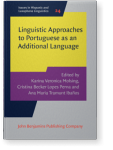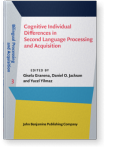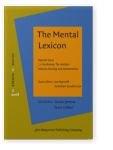Jared A. Linck
List of John Benjamins publications for which Jared A. Linck plays a role.
2020 Leveraging Spanish knowledge and cognitive aptitude in Portuguese learning Linguistic Approaches to Portuguese as an Additional Language, Molsing, Karina Veronica, Cristina Becker Lopes Perna and Ana Maria Tramunt Ibaños (eds.), pp. 191–230 | Chapter
This chapter describes a study investigating the question of whether and to what extent the presence of the donor language (L2; Spanish) and the first language (L1; English) in a reading comprehension task facilitates or impedes lexical learning in a related language (L3; Portuguese). The study… read more
2020 Autonomous Portuguese L3 learning through an adaptive platform Linguistic Approaches to Portuguese as an Additional Language, Molsing, Karina Veronica, Cristina Becker Lopes Perna and Ana Maria Tramunt Ibaños (eds.), pp. 231–258 | Chapter
Despite increasing need for on-demand, autonomous language learning, difficult technical issues render this approach insufficient without a human in the loop (e.g., blended learning). In this chapter, we discuss how recent advances in human language technology (HLT), cognitive science, and second… read more
2016 Analyzing individual differences in second language research: The benefits of mixed effects models Cognitive Individual Differences in Second Language Processing and Acquisition, Granena, Gisela, Daniel O. Jackson and Yucel Yilmaz (eds.), pp. 105–128 | Chapter
Second language (L2) learners differ on myriad attributes, ranging from cognitive abilities (e.g. auditory perceptual acuity, working memory) to linguistic abilities like L2 proficiency to personality or motivational factors. For decades, scholars have been interested in understanding the impact… read more
2008 Cross-language lexical processes and inhibitory control L2 Vocabulary: The interface between learning and representation, Barcroft, Joe and Gretchen L. Sunderman (eds.), pp. 349–374 | Article
Many recent studies demonstrate that both languages are active when bilinguals and second language (L2) learners are reading, listening, or speaking one language only. The parallel activity of the two languages has been hypothesized to create competition that must be resolved. Models of bilingual… read more


